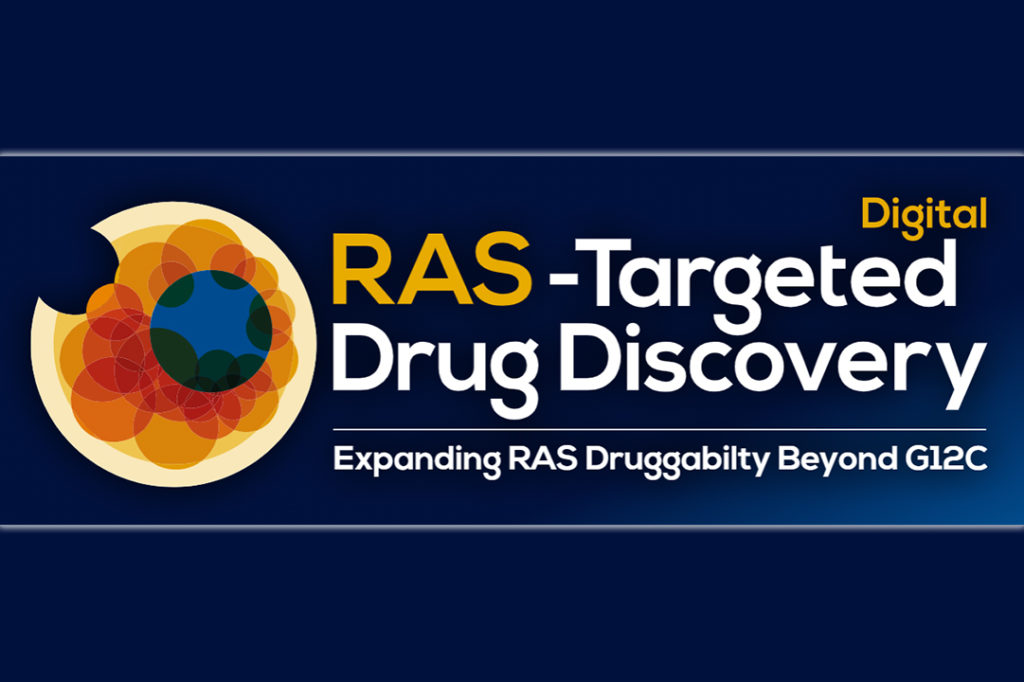
Leaving No Patient Behind: Precision Combination Therapy for RAS-Driven Cancers
By Jonathan Pachter, CSO, Verastem Oncology
It is a remarkable time for biopharmaceutical research targeting oncogenic RAS mutations that, for decades, have been considered undruggable. A sophisticated collaborative effort across industry and academia is under way to meet the epic complexities of the RAS signaling pathway.
This week I have the honor of moderating four sessions at the Digital RAS-Targeted Drug Discovery summit (Feb 23-25). This forum is an opportunity for preclinical and translational RAS experts to come together to discuss potential strategies to collectively tackle cancers driven by RAS pathway mutations, including and beyond KRAS G12C. Also, Verastem will be presenting preclinical data on Avutometinib synergies with several target-specific agents for RAS-driven cancers that advance our collective understanding of how to tackle these pervasive and virulent mutations.
The subject of more than 30 years of research, RAS is the most frequently mutated oncogene in human cancers. Approximately 30% of all human cancers are driven by mutations of the RAS family of genes. These cancers are typically highly aggressive and recurrent, sending signaling commands through the RAS pathway.
The RAS pathway comprises a chain reaction of signaling: RAS activates RAF; RAF activates MEK; MEK activates ERK, and ERK promotes irregular cell proliferation and tumor growth. Unfortunately, blocking cancer cells at any single target in this pathway is generally insufficient. Cancer is a relentless foe when encountering any challenge essential to its survival. Upon blockade of any single target in the RAS pathway, cancer cells will switch on other nodes in the RAS pathway, as well as activate parallel pathways, to sustain their growth.
“Cancer is a relentless foe when encountering any challenge essential to its survival. Upon blockade of any single target in the RAS pathway, cancer cells will switch on other nodes in the RAS pathway, as well as activate parallel pathways, to sustain their growth.”
In anticipation of the upcoming RAS summit, I caught up a couple weeks ago with Dr. Robert Weinberg, a Founding Member of the Whitehead Institute for Biomedical Research and Professor of Biology at the Massachusetts Institute of Technology. Dr. Weinberg’s pioneering discovery of the RAS oncogene in the early 1980s helped pave the way for the growing tide of targeted cancer therapies. Dr. Weinberg is one of the co-founders of Verastem Oncology, and he currently serves on our Scientific Advisory Board. We discussed the exciting momentum in the RAS field after so many decades of effort, and the importance of targeting RAS-driven cancers with novel combinations.
On Wednesday during the RAS summit, Verastem Oncology will present preclinical research defining synergistic combinations with our novel RAF/MEK dual inhibitor avutometinib for KRAS mutant cancers. With this unique dual mechanism of action, avutometinib confers vertical inhibition of the RAS pathway with a single drug. Avutometinib has been tested in combination with agents targeting other nodes in the RAS pathway, such as SHP2, SOS1 and ERK1/2 (vertical inhibition) as well as with agents targeting parallel pathways, such as FAK, the PI3K/AKT/mTOR pathway, and CDK4/6 (parallel blockade).
Our belief is that different combinations will be needed to treat specific KRAS mutation variants, as well as specific cancer indications. For example, our preclinical data indicate the potential of combining avutometinib with a G12C inhibitor for treating KRAS G12C mutant non-small cell lung cancer (NSCLC); whereas treatment with avutometinib with our FAK inhibitor defactinib may be synergistic for treating KRAS G12V mutant NSCLC. Indeed, the combination of avutometinib and defactinib is being investigated for treatment of KRAS G12V mutant NSCLC as part of our RAMP (Raf And Mek Program) study.
The RAMP trials are also investigating this combination in low-grade serous ovarian cancer (LGSOC), a cancer type driven by RAS pathway alterations, with an innovative intermittent dosing schedule.
RAS researchers continue to press forward, share ideas and information, and relentlessly continue the hunt for RAS-targeted treatment regimens. The vision is that, in the not-too-distant-future, we want to be able to select from various RAS-targeted treatments to create “pathway cocktails” with these combinations, allowing us to deliver deeper and more durable responses for specific subsets of cancer patients.
The ability to control the RAS signaling network with that level of customization could deliver a new era of personalized, precision medicine that might help to, at last, truly leave no patient with a RAS pathway-driven cancer without options.